“You may notice that menopause causes your mood
to change. This is due to changing hormone levels.
You might experience…”.1
Umbrella
What may the Menopause Mood Changes Umbrella include?
Depending on the Source (DotS) this Umbrella may include:
- Menopause Mood Changes
- Menopause Moodiness
- Menopause Moods
Mood Changes
Is there an association between menopause and mood changes?
In Symptoms of Menopause: Mood and Emotional Health the (Australian) Jean Hailes for Women’s Health (JH) note:
 “You may notice that menopause causes your mood to change. This is due to changing hormone levels. You might experience:
“You may notice that menopause causes your mood to change. This is due to changing hormone levels. You might experience:
- Irritability
- Increased anger
- Low mood
- Depression and anxiety”.2
Perimenopause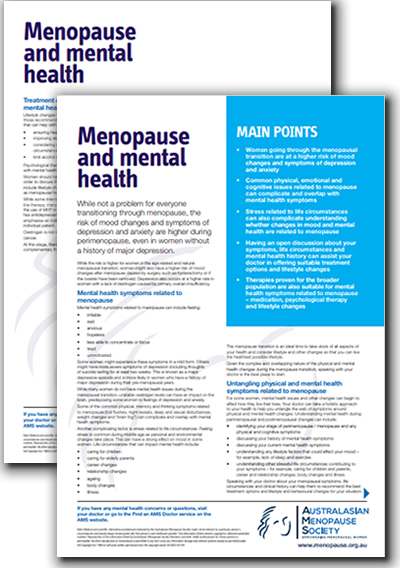
Is there an association between perimenopause and anxiety?
In Menopause and Mental Health the Australasian Menopause Society (AMS) note:
Depression
Does menopause cause depression?
According to the AMS:
“Depression is not more common at menopause than at other stages of life, but a past history of depression, particularly post-natal depression, and stress during the peri-menopause may make a woman more likely to succumb to mood problems”.4
In Symptoms of Menopause: Mood and Emotional Health the JH note:
Women who have a history of depression or premenstrual syndrome (PMS) may be more likely to develop depression during this time”.5
On page one and two in Emotional Wellness In Menopause: What About Depression?, published date June 2023, the (British) Women’s Health Concern (WHC) elaborate on:
Risk Factors
What may be some risk factors for depressive symptoms/disorders?
In Mood and the Menopause the AMS explain:
What is VMS?
VMS can be an abbreviation for Vasomotor Symptoms.
What is MDD?
MDD can be an abbreviation for Major Depressive Disorder.
What is FSH?
FSH can be an abbreviation for Follicle Stimulating Hormone (FSH).
Self Care
How can we look after our selves?
In Caring for Your Mental Health: About Self-Care the (United States) National Institute of Mental Health elaborate on:
 “Self-care means taking the time to do things that help you live well and improve both your physical health and mental health. This can help you manage stress, lower your risk of illness, and increase your energy. Even small acts of self-care in your daily life can have a big impact.
“Self-care means taking the time to do things that help you live well and improve both your physical health and mental health. This can help you manage stress, lower your risk of illness, and increase your energy. Even small acts of self-care in your daily life can have a big impact.
Here are some self-care tips:
- Get regular exercise. Just 30 minutes of walking every day can boost your mood and improve your health. Small amounts of exercise add up, so don’t be discouraged if you can’t do 30 minutes at one time
- Eat healthy, regular meals and stay hydrated…
- Make sleep a priority…
- Try a relaxing activity…
- Set goals and priorities…
- Practice gratitude…
- Focus on positivity…
- Stay connected…”.8
In Looking After Yourself During Menopause: Emotional Wellbeing the JH explain:
For example:
- Talk to someone you trust about your feelings (e.g. your friend, family member, doctor or psychologist)
- Keep a diary of your symptoms
- Take time for yourself and do things you love doing
- Get quality rest when you can
- Do regular physical exercise, especially in a group or with friends
- Practise relaxation techniques
- Pay attention to your inner voice and practise using positive affirmations”.9
Online Resources, Programs, Apps and e-therapies
Are mental health online resources, programs, Apps and e-therapies available?
Depending on your Country, mental health online resources, programs, Apps and e-therapies may be available.
Your health care provider or local community health center may know of your Country’s recommended mental health online resources, programs, Apps and e-therapies, similar to the (Australian) Government’s Head To Health.
Treatments
What treatments are available?
On page one in Emotional Wellness In Menopause: What Treatments Are Available? the WHC elaborate on:
- Anti-depressants can help with emotional and cognitive symptoms of the menopause. However, unless you have been diagnosed with depression, there are other treatments which may be more helpful and appropriate
- Hormone Replacement Therapy (HRT) can help with many cognitive and emotional symptoms of menopause. HRT can also help improve quality of sleep. It’s useful to keep a record of symptoms to discuss with your HRT prescriber as this will help identify the best HRT regime for you
- Cognitive Behavioural Therapy (CBT) and other talking therapies can be hugely beneficial in dealing with some of the emotional symptoms of menopause. Even women who have never used therapies before and them helpful to navigate their menopause journey
- Mindfulness and meditation are popular techniques to help relax and clear the mind – a very useful addition to managing some of the emotional and cognitive symptoms of menopause. Alongside restorative exercise such as yoga and Pilates, both body and mind can recover and heal”.10
Menopausal Hormone Therapy
Can menopausal hormone therapy help?
In Mood and the Menopause the AMS elaborate on:
Health Care Provider
What if I need help with my menopause mood?
In Looking After Yourself During Menopause: Emotional Wellbeing – Talk To Your Doctor the JH encourage us to seek health:
Health Topics A-Z
Where may I find Health Topics A-Z related to Menopause Mood Changes?
In Health Topics A-Z you may find:
Health Topics A-Z
- Hormone Therapy
- Menopause
- Menopause Anxiety
- Menopause Blues
- Menopause Depression
- Menopause Irritability
- Menopause Management
- Menopause Mental Health
- Menopause Mood Changes
- Menopause Mood Swings
- Menopause Psychological Symptoms
- Menopause Symptoms Pattern
- Menopause Videos 2025
- Perimenopause
- Premenstrual Syndrome (PMS)
Links
Where may I find Links related to Menopause Mood Changes?
Your Country may have Links similar to:
Links
This Links List to third party websites is neither comprehensive nor exhaustive. Inclusion on this Links List does not imply endorsement or recommendation. Non-inclusion on this Links List does not imply non-endorsement or non-recommendation. Third party websites are not under the control of Meno Martha International Menopause Directory. Third party websites may contain explicit medical images and/or sexual references. Please read Meno Martha International Menopause Directory’s Links Policy before proceeding to a Link. Please contact Webmaster if you experience a problem with a Link.New or Updated
- Does Menopause Really Cause Depression? [06 June 2024]
- First Symptoms of Menopause [June 2024]
- Is Hormone Therapy A Key Strategy In Treating Menopausal Depression? [Video] [17 May 2024]
- Menopause Depression
- Videos & Podcasts: Videos – Menopause and Hormone Therapy: Current Perspectives and Controversies [18 October 2024]
- World Menopause Day 2024: Leaflet for Women [Multiply Languages]
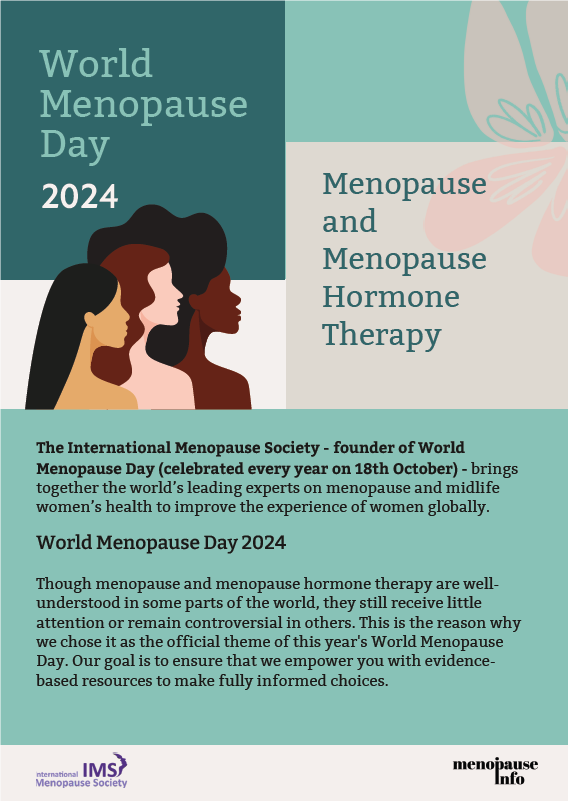
- 5 Steps To Mental Wellbeing
- 5 Ways To Cope With Menopausal Mood Swings
- 7 Ways To Boost Your Health By Practicing Gratitude
- ACOG Explains: Managing Menopause Symptoms [American College of Obstetricians and Gynecologists]
- Anxiety
- Anxiety vs. Depression: Which Do I Have (or Is It Both)?
- Askearlymenopause.org [Ask EM] [+ Video: What Is Early Menopause?]
- CBT Effective for Perimenopausal Vasomotor Symptoms, Sleep and Depression
- Cognitive Behaviour Therapy (CBT) for Menopausal Symptoms
- Consumer Video and Podcast Series: 2024 Consumer Videos and Podcasts – Cognitive Behavioral Therapy and Menopause
- Consumer Video and Podcast Series: 2024 Consumer Videos and Podcasts – Preparing for Your Menopause Healthcare Visit
- Curb Antidepressant Use: Perimenopausal Women May Benefit From HRT
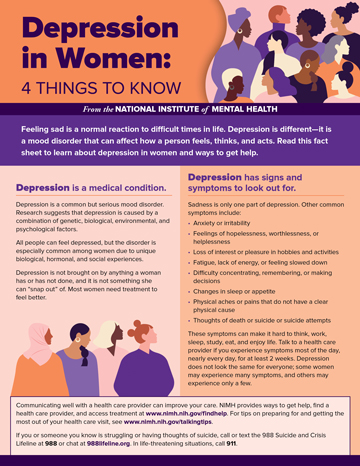 Deciding About Hormone Therapy Use
Deciding About Hormone Therapy Use- Depression (Major Depressive Disorder)
- Depression In Women: 4 Things To Know
- Depression and the Menopause
- Diet and Mental Health
- Does Menopause Hormone Therapy Improve Symptoms of Depression? Findings From A Specialized Menopause Clinic
- Does Menopause Really Cause Depression
- Emotional Wellness In Menopause
- Experts Answer Your Menopause Questions In New Video
- Find A Menopause Practitioner [United States and Other]
- Find An AMS Member [Australasian Menopause Society: Australia and New Zealand]
- Find Your Nearest BMS Menopause Specialist [British Menopause Society]
- First Symptoms of Menopause [Video]
- HRT Questions Answered
- How Mindfulness Meditation Improves Mental Health
- How To Choose the Best Mental Health App for You
- How To Manage Menopausal Insomnia
- How To Talk To Your Doctor About Menopause
- How To Talk To Your Doctor About Midlife Brain Fog
- Later Years (Around 50 Years and Over): Menopause and Post Menopause Health – Menopause and Your Mental Wellbeing [+ Video: Menopause Only Affects You Physically!] [Other Languages and Formats]
- Later Years (Around 50 Years and Over): Menopause and Post Menopause Health – Signs and Symptoms of Menopause [+ Video: Talking Menopause With Your GP] [Other Languages and Formats]
- Later Years (Around 50 Years and Over): Menopause and Post Menopause Health – Supporting Someone Through the Menopause [+ Video: Men Don’t Need To Know About Menopause] [Other Languages and Formats]
- Looking After Yourself During Menopause
- Mastering Midlife Mood Changes With Marlene Freeman, MD
- Mayo Clinic Minute: How Lifestyle Changes May Help Manage Menopause Symptoms
- Mayo Clinic Minute: Perimenopause and Menopause [+ Video Courtesy: Mayo Clinic News Network]
- Mayo Clinic Minute: Prescribing Nature for Mental, Physical Health [+ Video Courtesy: Mayo Clinic News Network]
- Mayo Clinic Q and A: Countdown To Control Anxiety
- Mayo Clinic Q and A: Perimenopause Transitions and Concerns
- Menopause
- Menopause
- Menopause
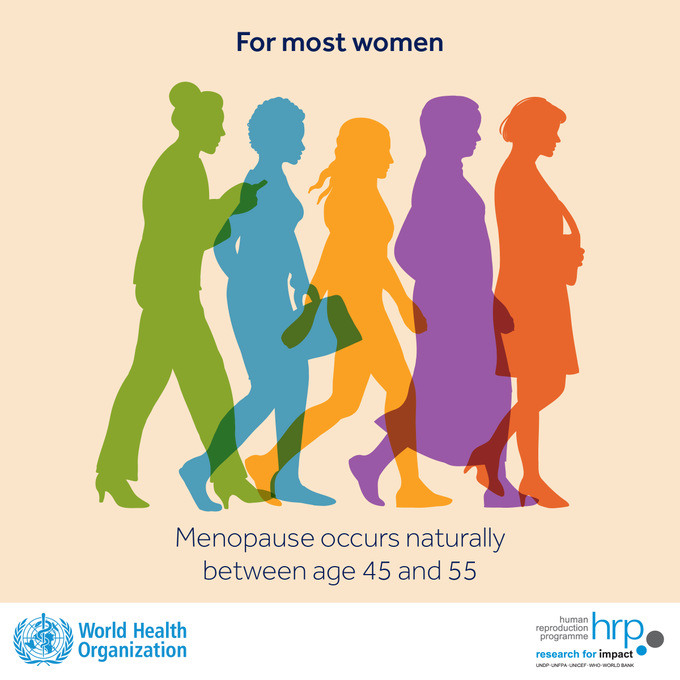
- Menopause Checklist Podcast: Episode 3: I’m Not Myself
- Menopause Depression: Under Recognised and Poorly Treated [Kulkarni, J. et al]
- Menopause Depression: Under Recognized and Poorly Treated [By Professor Jayashri Kulkarni and Dr Louise Newson, on behalf of all authors on article]
- Menopause Map: Downloadable Resources – My Personal Path Print Tools: Questions for Your Health Care Provider

- Menopause Map: Downloadable Resources – My Personal Path Print Tools: Relaxation Techniques
- Menopause Map: Downloadable Resources – My Personal Path Print Tools: Symptom Tracker
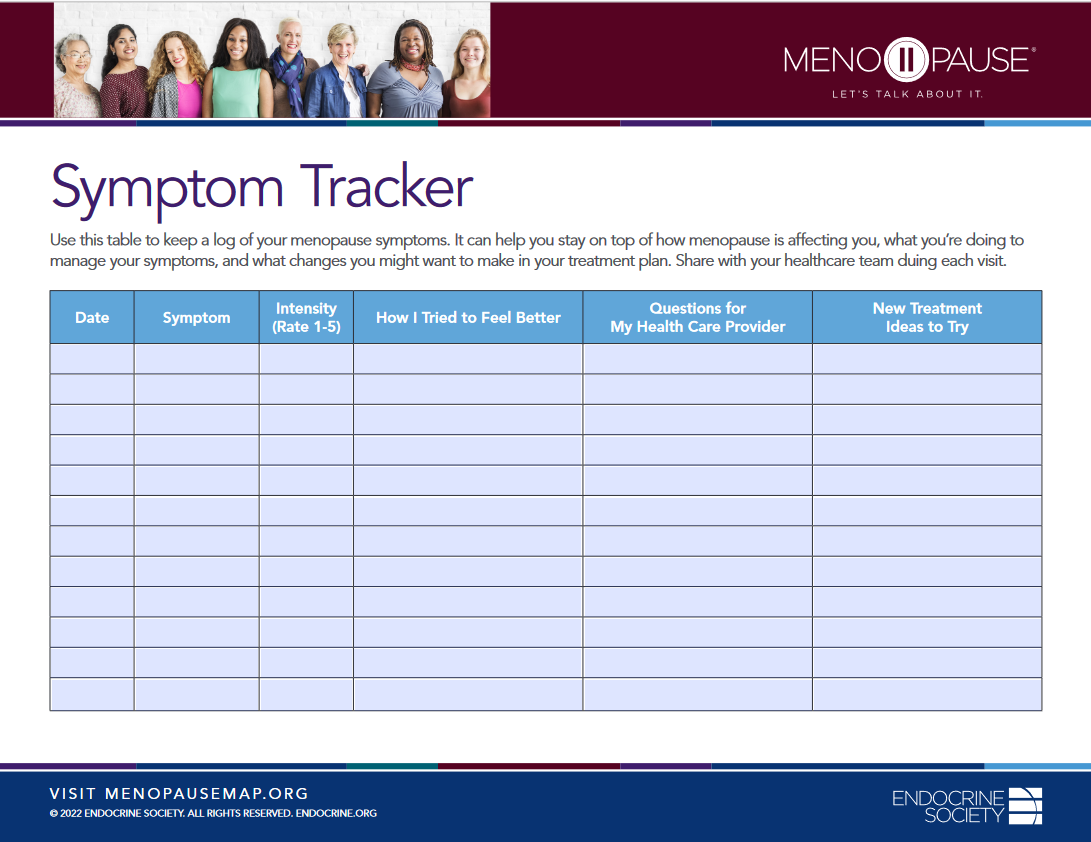
- Menopause Patient Information [Videos] 2. Talking To Your GP About Menopause
- Menopause Patient Information [Videos] 5. Lifestyle Advice In Menopause & Perimenopause
- Menopause Transition Does Not Increase Risk for Depressive Symptoms for All Women
- Menopause and Mental Health
- Menopause and Mental Health
- Menopause: Ensuring A Tranquil Transition
- Menopause: Identification and Management [NICE Guideline Published: 12 November 2015 Last Updated: 07 November 2024]

- Menopause: Identification and Management: NICE Guideline [NG23] Published: 12 November 2015 Last Updated: 07 November 2024
- Menopause: Things You Can Do
- Menopause: Understanding the Changes and Finding Relief | Dr Susan Davis | The Proof Podcast EP 256
- Mental Health
- Mood Changes During Perimenopause Are Real. Here’s What To Know
- Mood and the Menopause
- Mymenoplan.org [My Menoplan, United States]
- National Center for Complementary and Integrative Health: Depression
- National Center for Complementary and Integrative Health: Herbs At A Glance
- National Center for Complementary and Integrative Health: How Safe Is This Product or Practice?
- Navigating Menopause: Expert Insights and Solutions | Dr Susan Davis | The Proof Podcast EP 245
- “Not feeling like myself” in perimenopause — what does it mean? Observations From the Women Living Better Survey
- Our Best Mental Health Tips – Backed By Research
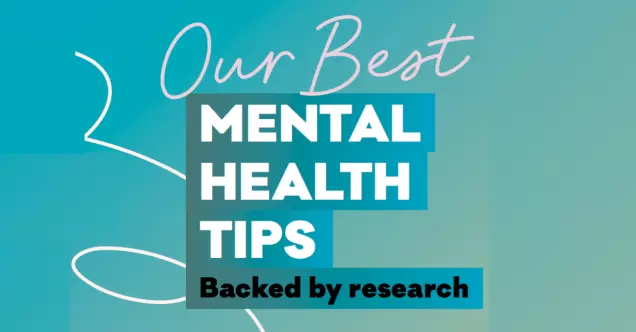
- Perimenopause
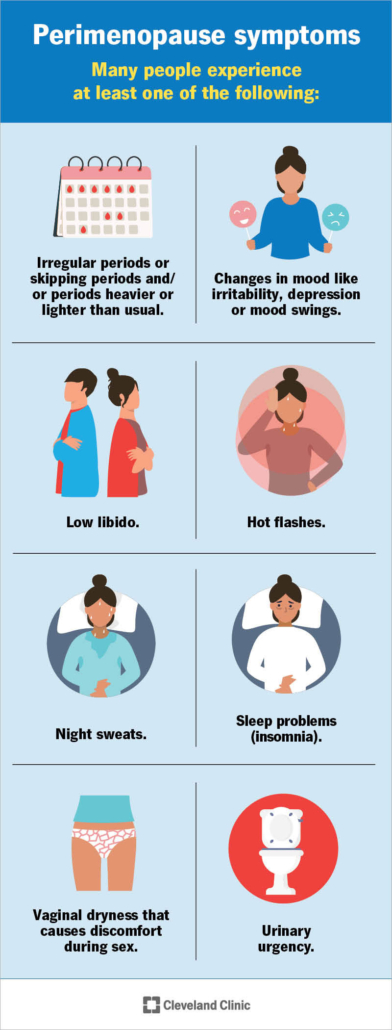
- Perimenopause
- Perimenopause and Menopause Checklist: Translated Checklists
- Perimenopause and Menopause Symptom Checklist

- Promoting Good Mental Health Over the Menopause Transition
- R U OK? Day [12 September 2024, Australia]

- SAMe
- Self-Help Tool: Menopause and Mental Wellbeing
- Should You Try An L-Tyrosine Supplement? A Look at Its Benefits and Side Effects
- Supporting A Loved One Through Menopause
- Surprising Menopause Symptoms Revisited | Dr Louise Newson
- Symptoms of Menopause: Mood and Emotional Health
- Talking To Your GP About Your Mental Health
- The Risk of Depression In the Menopausal Stages: A Systematic Review and Meta-Analysis
- The Truth About Menopause Supplements | Dr Sarah Berry
- Therapy Could Be Effective Treatment for Non-Physical Symptoms of Menopause
- Tips To Help Manage Menopause Symptoms
- Top Tips To Improve Your Mental Wellbeing
- Using Natural Therapies In the Menopause Transition – Webinar
- Videos & Podcasts: Videos – Menopause and Hormone Therapy: Current Perspectives and Controversies
- Videos and Podcasts: Videos – Interviews: The Menopause Blues
- What Everyone Should Know About Menopause Symptoms
- What Is Cognitive Behavioral Therapy?
- What Is the Menopause?
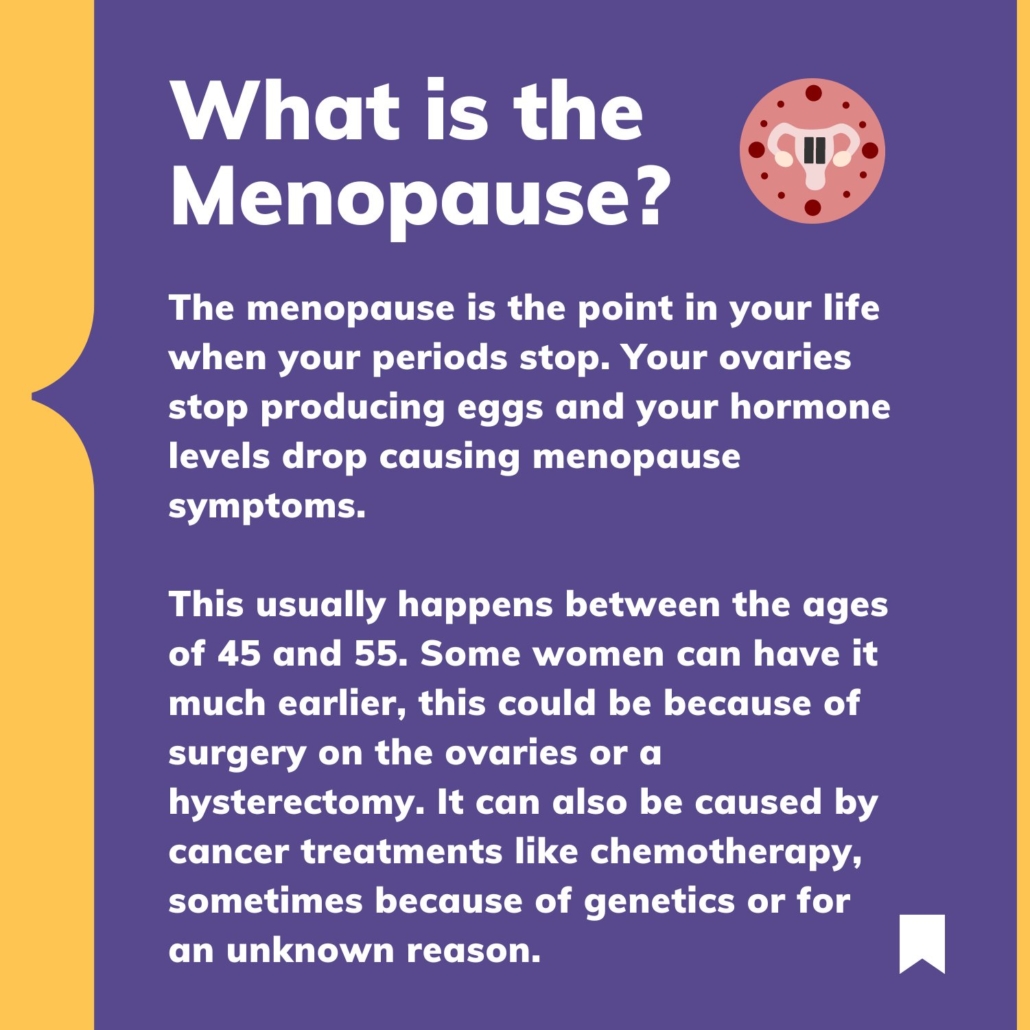
- When Depression Sneaks Up on Menopause
- Webinars: Previous – Non-Hormonal Pharmacological Interventions For VMS
- Webinars: Previous – Non-Pharmacological Interventions For VMS
- When Does Perimenopause Start and How Do You Define the Beginning [27 November 2024]
- World Menopause Day 2024: Leaflet for Women [Multiply Languages]
Sources
Where may I find the Sources quoted?
You may find the Sources quoted at:
Sources
- Symptoms of Menopause: Mood and Emotional Health. Last Updated: 02 December 2024 | Last Reviewed: 19 August 2022. Jean Hailes for Women’s Health https://www.jeanhailes.org.au/health-a-z/menopause/menopause-symptoms Accessed: 15 January 2024
- Symptoms of Menopause: Mood and Emotional Health. Last Updated: 02 December 2024 | Last Reviewed: 19 August 2022. Jean Hailes for Women’s Health https://www.jeanhailes.org.au/health-a-z/menopause/menopause-symptoms Accessed: 15 January 2024
- Menopause and Mental Health. Content Updated: February 2023. Australasian Menopause Society https://www.menopause.org.au/health-info/fact-sheets/menopause-and-mental-health Accessed: 15 January 2024
- What Is Menopause? Psychological Symptoms of Menopause. Content Created: May 2022. Australasian Menopause Society https://www.menopause.org.au/hp/information-sheets/185-what-is-menopause Accessed: 15 January 2024
- Symptoms of Menopause: Mood and Emotional Health. Last Updated: 02 December 2024 | Last Reviewed: 19 August 2022. Jean Hailes for Women’s Health https://www.jeanhailes.org.au/health-a-z/menopause/menopause-symptoms Accessed: 15 January 2024
- Emotional Wellness In Menopause: What About Depression? Published Dated: June 2023:1-2. Women’s Health Concern https://www.womens-health-concern.org/wp-content/uploads/2023/06/30-WHC-FACTSHEET-Emotional-wellness-in-menopause-JUNE2023-A.pdf Accessed: 15 January 2024
- Mood and the Menopause. Content Updated: 09 February 2023. Australasian Menopause Society https://www.menopause.org.au/hp/information-sheets/mood-and-the-menopause Accessed: 15 January 2024
- Caring for Your Mental Health: About Self-Care. Last Reviewed: December 2024. National Institute of Mental Health https://www.nimh.nih.gov/health/topics/caring-for-your-mental-health Accessed: 15 January 2024
- Looking After Yourself During Menopause: Emotional Wellbeing. Last Updated: 20 September 2024 | Last Reviewed: 19 August 2022. Jean Hailes for Women’s Health https://www.jeanhailes.org.au/health-a-z/menopause/looking-after-yourself Accessed: 15 January 2024
- Emotional Wellness In Menopause: What Treatments Are Available? Published Dated: June 2023:1. Women’s Health Concern https://www.womens-health-concern.org/wp-content/uploads/2023/06/30-WHC-FACTSHEET-Emotional-wellness-in-menopause-JUNE2023-A.pdf Accessed: 15 January 2024
- Mood and the Menopause: Management. Content Updated: 09 February 2023. Australasian Menopause Society https://www.menopause.org.au/hp/information-sheets/mood-and-the-menopause Accessed: 15 January 2024
- Looking After Yourself During Menopause: Emotional Wellbeing – Talk To Your Doctor. Last Updated: 20 September 2024 | Last Reviewed: 19 August 2022. Jean Hailes for Women’s Health https://www.jeanhailes.org.au/health-a-z/menopause/looking-after-yourself Accessed: 15 January 2024








